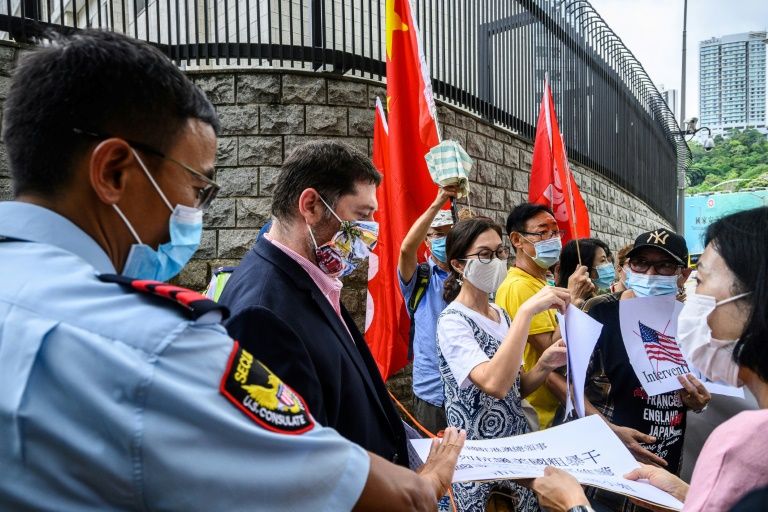US restricts visas in latest move on Hong Kong
()
Secretary of State Mike Pompeo said the United States would restrict visas for unspecified current and former officials of the Chinese Communist Party “who were responsible for eviscerating Hong Kong’s freedoms.”
The officials who were targeted were “responsible for, or complicit in, undermining Hong Kong’s high degree of autonomy,” which Beijing promised before regaining control of the territory in 1997 from Britain, Pompeo said.
“The United States calls on China to honor its commitments and obligations in the Sino-British Joint Declaration,” Pompeo said in a statement, urging protections of “freedoms of expression and peaceful assembly.”
A State Department spokeswoman declined to say how many people were affected or even if they would all be denied entry to the United States.
“Individuals subject to this visa restriction policy will be evaluated for their eligibility under this policy when they apply and may be refused visas,” she said.
China is moving forward on a security law that would enforce punishment over subversion and other perceived offenses in Hong Kong, which saw massive and occasionally destructive pro-democracy protests last year.
Activists say the law would effectively undo the freedoms enjoyed by Hong Kong, one of the world’s premier financial hubs.
– Congress seeks ‘mandatory’ sanctions –
Pompeo’s action comes one day after the US Senate approved a bill that would impose “mandatory” economic sanctions in the United States against Chinese officials and Hong Kong police identified as hurting the city’s autonomous status.
In one element of pressure that could have far-reaching consequences, the Hong Kong Autonomy Act would also punish banks that do “significant transactions” with identified violators.
Supporters of the bill, which needs to be passed by the House of Representatives, say they want to impose real costs on Chinese officials rather than just issue condemnations.
Democratic Senator Chris Van Hollen, speaking Thursday on the Senate floor, said that the Trump administration could have taken action on its own if it had chosen to do so.
Pompeo has said that Hong Kong is no longer autonomous in US eyes, but initial actions taken by Trump have been vague, including ordering changes to an extradition treaty.
Trump has not publicly said if he would sign the Hong Kong Autonomy Act into law, but in the past, he has criticized legislation that ties his hands.
The Trump administration, led by Pompeo, has furiously denounced China on issues from its initial handling of the coronavirus pandemic to human rights to its military spending.
But Trump is also hopeful that China will implement a bilateral trade deal and has praised President Xi Jinping personally.
An explosive new book by former national security advisor John Bolton alleges that Trump asked Xi to boost his re-election chances by buying produce from politically crucial farmers.
A senator from Trump’s Republican Party, Kevin Cramer, briefly held up the Hong Kong Autonomy Act as he sought technical corrections.
But it passed unanimously and is expected to enjoy wide support in the House, which is led by Democrats.
Senator Pat Toomey, a Republican who co-sponsored the act with Van Hollen, voiced hope that the House would pass it quickly and Trump signs it to send a message to Beijing.
Disclaimer: Validity of the above story is for 7 Days from original date of publishing. Source: AFP.


